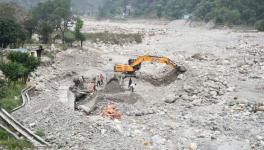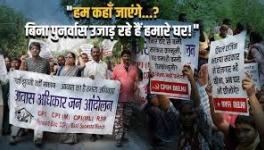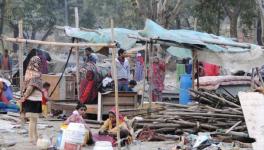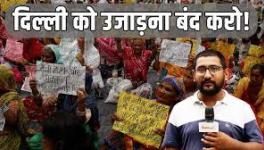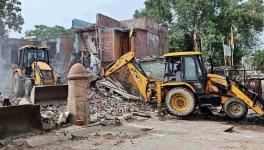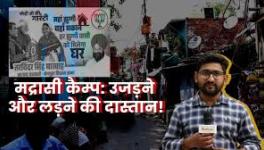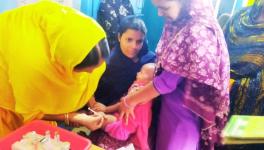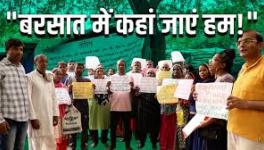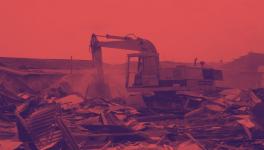Medical Paternalistic View of Disability Afflicts University of Disability Studies Bill

Image Used for Representational Purpose Only
The word “disability” is amorphous and it needs to be approached from multiple angles. However, historically disability has been considered to be the equivalent of impairment, loss, pathology or deviance. This view of disability leads to the ontological tendency of finding medical and rehabilitative solutions to the problem of disability. Disability has, therefore, remained a major concern of medicine, social work and education relying heavily on the medical/paramedical professionals, who know the cure for the ‘problem’.
The disability rights movement sought to transform disability from a matter of segregated institutionalised care, cure and charity to a matter of justice and rights. The academic field of Disability Studies (DS) emerged out of this movement. DS involves exploring the way in which “disability” is produced – through politics, through institutional arrangements, through economic prioritisation, and, most certainly, through the use and abuse of language. Disability Studies challenges medicalised and rehabilitative approaches to disability and seeks to understand it from a distinct epistemology. Such knowledge production recenters the experiences and perspectives of disabled individuals and their process of disablement by inaccessible landscapes, societies, and institutions… and engages a more global imaginary comprising war, relocation, environmental racism, state-authorised violence, and genocide.
Therefore, Disability Studies is concerned with questioning the norms of an ableist and productivist world that culturally devalues and materially marginalises disabled people. It is also concerned with raising our voices against a world system that deprives people and pushes them towards extreme levels of hunger and poverty and that justifies war (all of which produce disability).
Recognising the new and emerging approaches to see, talk and think about disability, the Rights of Persons with Disabilities (RPWD) Act, 2016 recognised disability as an “evolving concept”. It was therefore, a move away from a predominantly medical and individualistic view of disability towards situating disability in a broader context. The central government has recently proposed the University of Disability Studies and Rehabilitative Sciences Bill, 2021 seeking public response to the bill. It is a 128-page document comprising three texts: the bill (34 pg.s), a detailed project report (63 pg.s) and an EFC memo (31 pg.s). The first objective of the proposed university will be “to train and develop professionals, researchers and educators in disability studies and rehabilitation sciences”. The university seeks to provide graduate and higher levels of studies through eight departments namely: Department of Disability Studies, Department of Rehabilitation Sciences, Department of Audiology, Speech Language Pathology, and Indian Sign Language, Department of Special Education, Department of Psychology, Department of Prosthetics, Orthotics and Assistive Technologies, Department of Nursing and Department of Inclusive Universal Design. The document, however, does not expound on the connotations of disability studies. While it also remains silent on what is rehabilitation sciences, the titles of the courses proposed to be offered suggest that the university seeks to prepare para-medical and social work professionals alongside special educators and architects in universal inclusive design. Thus, the primary focus of the university seems to be preparing people to provide disability services and the bill hints towards a medical paternalistic view of disability, while neglecting the advances made in the understanding of disability as an interaction between impaired and/or diseased bodies and their contexts. The bill therefore, seems to view disability as a problem of dysfunctional or diseased bodies requiring services, and ignore the reality of discrimination as a source of the social, cultural and economic marginality of disabled people. This avoidance of the new knowledge about disability, on the one hand, shows that the medical paternalistic view of disability still prevails and it is equally indicative of social prejudice.
Furthermore, it is proposed that the university will become self-sustaining from the sixth year. Thus the university will generate 50% of its resources from students’ fees and another 50% from affiliation fees and curriculum designing etc. At pg 14 of the EFC Memo, a detailed table is provided for this resource generation system. Accordingly, a student who gets enrolled in the university will be annually charged Rs 1 lakh as tuition fees, Rs 0.75 lakh as hostel rent and additional Rs. 0.25 lakh for other charges. This comes out to a total of Rs 2 lakh per annum per student. On the other hand, a report released by the central government regarding income of taxpayers in August 2020 suggests that as high as 57% of the taxpayers of the country earn less than Rs. 2.5 lakh per annum. Taken together, it suggests that the university will remain elusive to most of the student age population of the country.
Overall the document seems to have been prepared in a haste, as it neither speaks clearly about the phrases used in its title nor does it suggest its view about the term ‘disability’. Additionally, objectives detailed in this document are very similar to those of the Rehabilitation Council of India (RCI), so apart from the use of the term ‘disability studies’ in the name of the university and one of its course, how will this new university respond to the emerging knowledge of the field is also not very clear. And, while the document seems to emphasise on inclusive design the proposed ‘self-sustaining university’ will prove to be financially excluding for most of the students.
The author is a research scholar at the National Institute of Educational Planning and Administration, New Delhi.
Also read: COVID-19: People’s Science Network Raises Questions about Vaccine Politics
Get the latest reports & analysis with people's perspective on Protests, movements & deep analytical videos, discussions of the current affairs in your Telegram app. Subscribe to NewsClick's Telegram channel & get Real-Time updates on stories, as they get published on our website.









